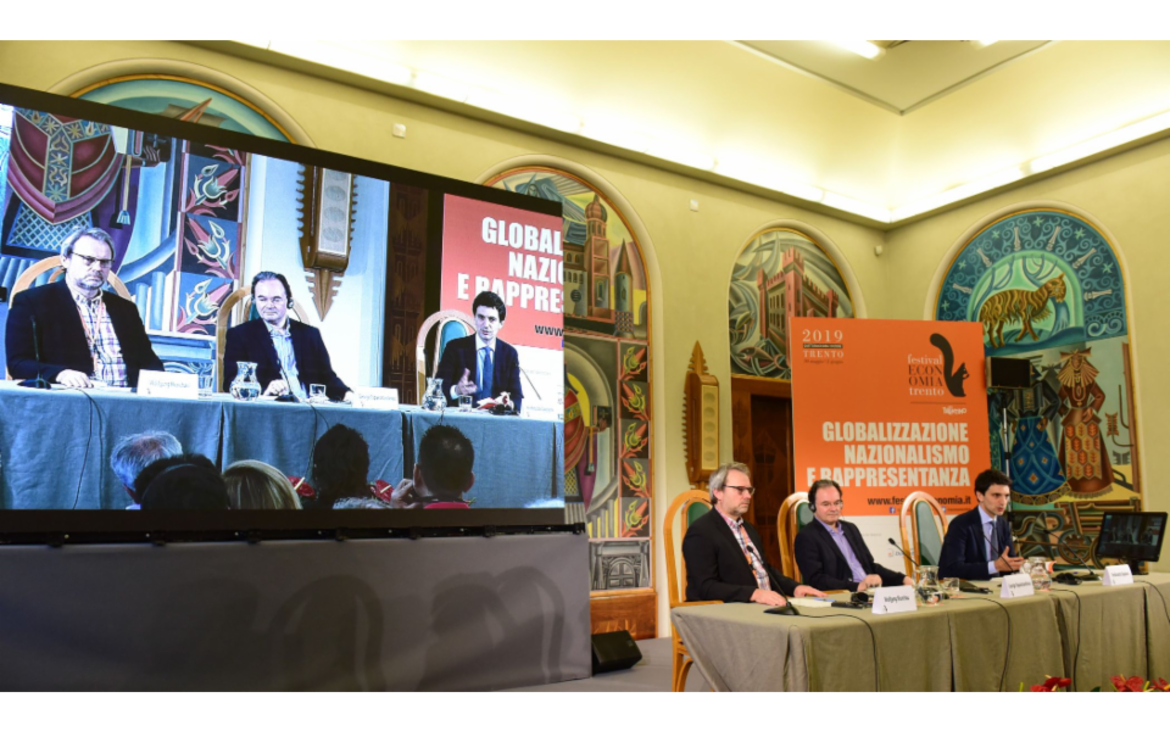
It was a tense discussion in Palazzo della Provincia as Wolfgang Munchau and former Greek Minister of Finance George Papaconstantinou discussed austerity in Greece and what can be learned from it.
Papaconstantinou, who is now a part time lecturer at the European University Institute outside of Florence, dwelled heavily on the possbilities of what could have happened had Greece not accepted a bailout package in 2015 and decided to exit the eurozone. Highlighting the fact that Greece had lost 25% of its GDP since being undertaken by the Troika program, he stressed the fact that a recession- that would be all but certain if Greece were to leave- would have plunged the GDP deficit potentially another 25%. At this point, Greece would have had lost 50% of its GDP. The pressing uncertainty at this point would have been how deep the recession would go and how long it would last.
The former Finance Minister continued by noting that Greece already is heavily dependent on imports for food and energy, which would make things even more difficult for Greece to recover on top of this theoretical -50% GDP loss.
Wolfgang Munchau agreed that had Tspiras turned down the bailout, it would most certainly plunge the Greek economy even further. However, Munchau wasn't convinced that this "catastophic" economic downturn would have lasted four years.
For Munchau, austerity was a "mistake" and a "catastrophic error". Although he admits that there needed to be some fiscal consolidation at the time of Greece's situation, it shouldn't have been executed to the extent that it was and not the the length that it was.
He continued by claiming that austerity was responsible for structural underinvestment in many eurozone countries and in fact led to a decline in economic growth and high unemployment.
His focal point was that austerity has actually heavily contributed to the rise of populist parties across the EU and is partially a reason why some are already in government.
Also touching on populists, Papacontantinou stressed that they able to see the real concerns of citizens and manifest themselves in different ways in various EU member states. They leverage themselves using a mix of both economic and non-economic issues currently pressing the country and always find a scapegoat, whether its the EU or foreigners, to cement themselves.
Transitioning to the Italian example, Papacontantinou said it would be interesting to see whether or not Italy will transition back to mainstream politics if the current populist government can solve the "How to Avoid Disaster" question that is plaguing so many of the member states where populism has taken off. For now, to Munchau too, the answer to that question remains unknown.
Watch the Interview with Munchau:
Website: https://2019.festivaleconomia.eu/home
Twitter: https://twitter.com/economicsfest
Facebook: http://www.facebook.com/festivaleconomiatrento
Instagram: https://www.instagram.com/festivaleconomia/








